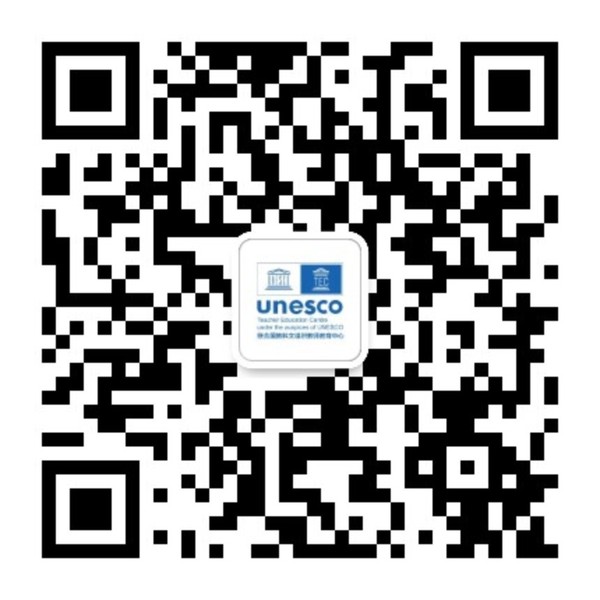From July 1 to 10, 2025, a study tour group organized by the UNESCO Teacher Education Centre (hereafter referred to as the Centre) conducted a 10-day educational and cultural study tour in Chiang Mai, Thailand. Coordinated and organized by Associate Professor Zhu Xiaohu from the Centre, the tour was co-led by Associate Professor Zhang Jilong, Vice Dean of the College of Education, and included 9 graduate students specializing in comparative education, educational management, and higher education.
In recent years, to advance China-Thailand educational exchanges and cooperation, the Centre has maintained ongoing interactions with Chiang Mai University, organizing study tours to Shanghai for faculty and students from Chiang Mai University in 2024 and 2025. At the invitation of the Thai side, the Centre organized this study tour to Chiang Mai, aiming to enhance graduate students’ international understanding and global competence. The Faculty of Education, Chiang Mai University, made meticulous preparations for the event, arranging diverse activities such as campus visits, classroom observations, forum discussions, and cultural experiences, providing participating teachers and students with rich insights into Thai education, culture, and society.
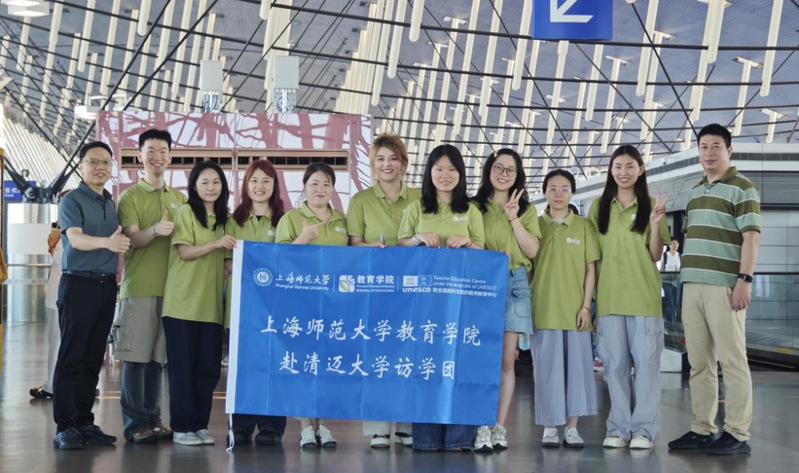
On July 2, the study tour group’s first stop was the Faculty of Education, Chiang Mai University. Professor Tipparat Noparit, Dean of the Faculty, along with her team, welcomed the group with traditional Thai etiquette and systematically introduced the faculty’s development strategy of rooted in local contexts and oriented towards the international community. Later, Associate Professor Zhu Xiaohu, on behalf of the Centre, signed a memorandum of cooperation with the Faculty of Education, Chiang Mai University. He stated that the Centre will continue to carry out research cooperation, faculty and student exchanges, and teacher training programs with Chiang Mai University in the future, contributing to China-Thailand educational exchanges. In the afternoon, the study tour group engaged in academic exchanges with the Department of Educational Management at Chiang Mai University. Professor Suban Pornwiang shared innovative practice projects of the department, and Chinese and Thai participants held lively discussions on the implementation paths of the student-centered philosophy in curriculum design and teacher development.
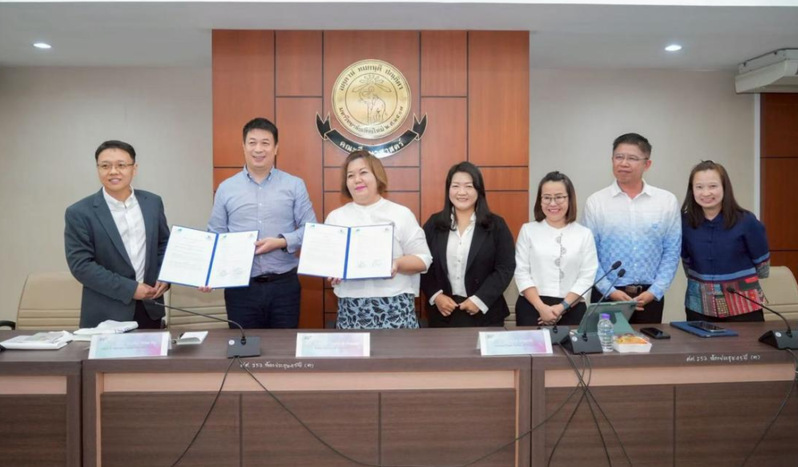
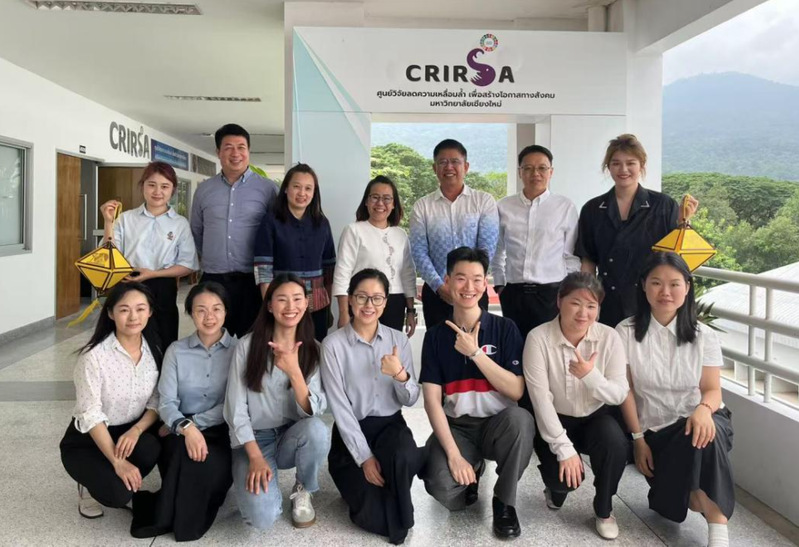
The following day, the study tour group visited the Demonstration Secondary School and Demonstration Primary School affiliated with Chiang Mai University. The principal of the secondary school, using a framework of six major strategies, explained how this prestigious private school has gained social recognition through refined management and home-school co-education. The primary school, through a case study of democratic management, showcased Thailand’s unique exploration in cultivating students’ leadership in basic education.
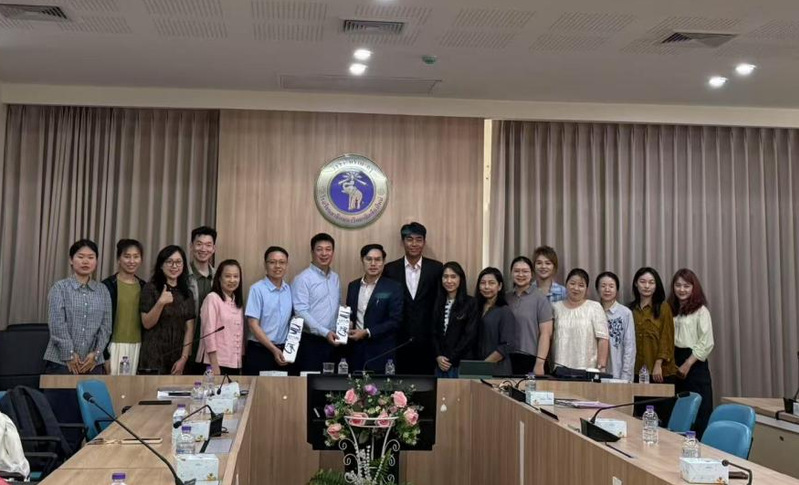
In the Chinese language teaching session, members of the study tour group designed interactive classes themed Shanghai Culture. Elements such as shengjianbao (pan-fried pork buns), the Oriental Pearl Tower, and Anfu Road coffee came to life through games and paintings. The children recited Quiet Night Thoughts in their Chinese, with laughter transcending national borders echoing inside and outside the classroom.
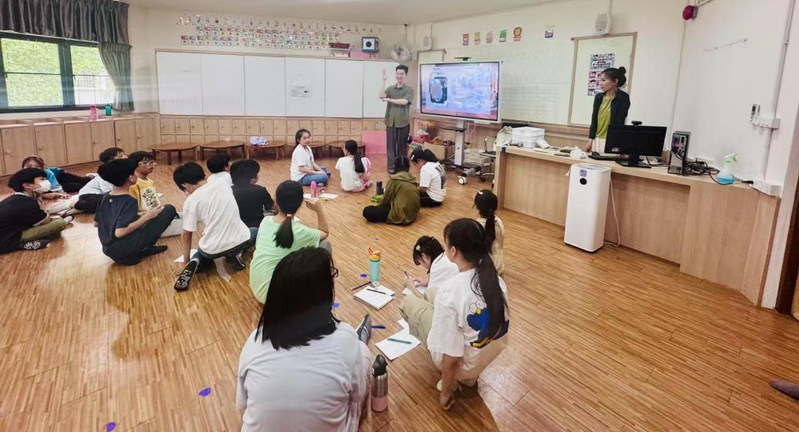
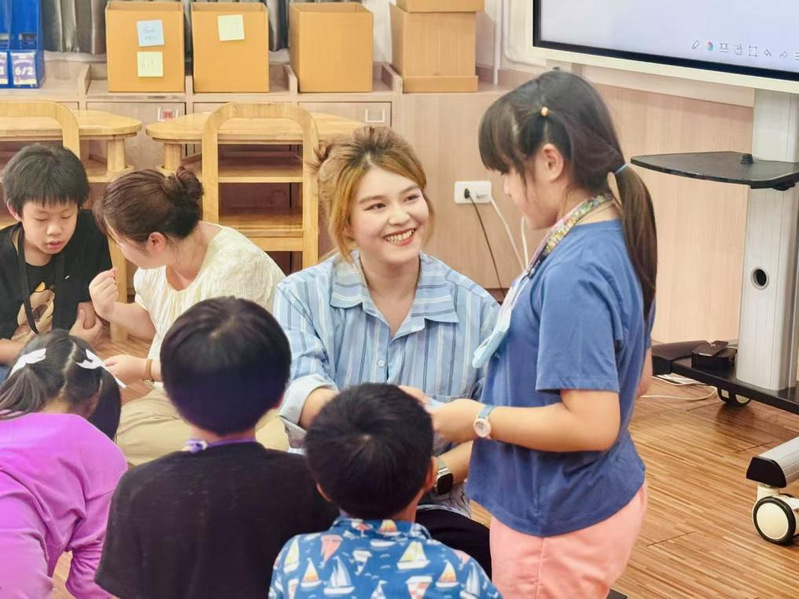
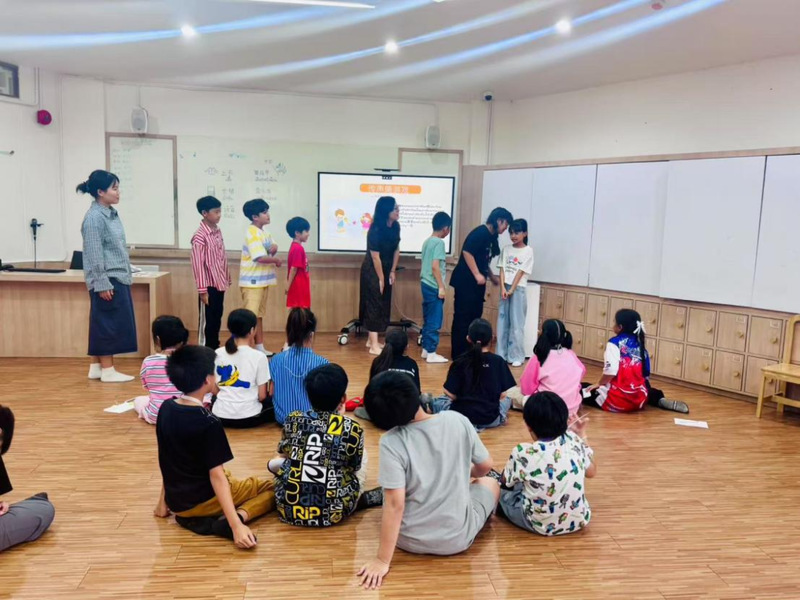
On July 4, the study tour group was invited to participate in the 2nd International Education Forum hosted by the Faculty of Education, Chiang Mai University, with the theme Educational Transformation for the Future, focusing on recent developments and technological innovations in education. In his opening speech, Professor Pongrak Sribanditmongkol, President of Chiang Mai University, extended a warm welcome to the SHNU faculty and students and expressed gratitude to the creative team behind SHNU’s MetaClass. In the afternoon parallel sessions, three graduate students from the study tour group—Feng Yuan, Huang Jingjing, and Li Yingying—delivered insightful presentations.
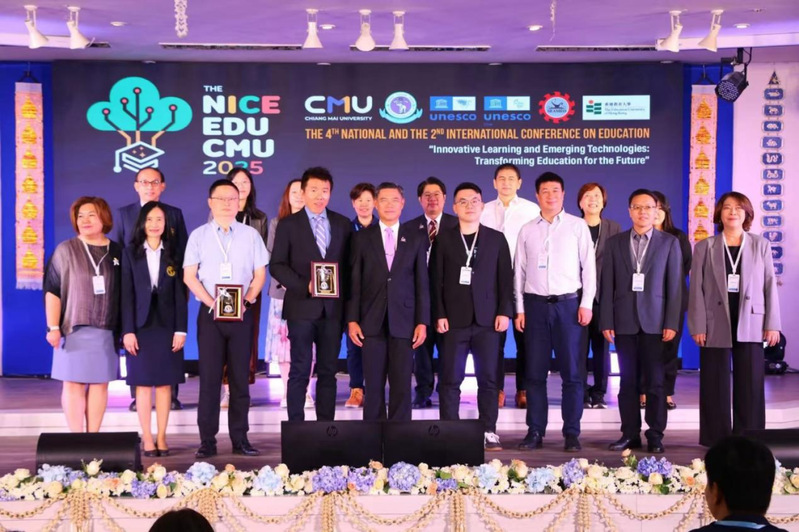
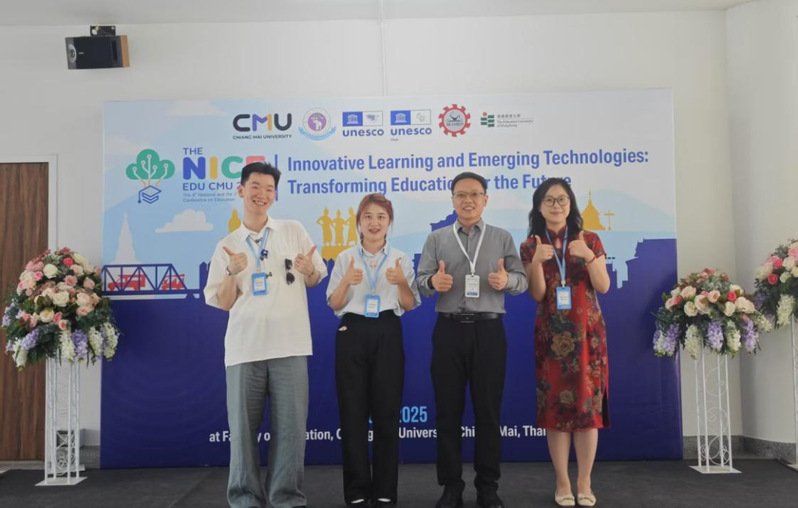
Another group of faculty and students visited WattanoThai Payap School in Chiang Mai for educational exchanges in the afternoon. Students Wu Mengying, Qu Yafang, and Jiang Tiantian respectively introduced to the school’s teachers the characteristics and experiences of Shanghai’s teacher development, school management, and teaching space design. The school shared Thailand’s PISA 2022 results and corresponding teaching improvement strategies. During the discussion session, both sides engaged in in-depth exchanges on issues such as educational evaluation, curriculum reform, educational digital technology, and student development.
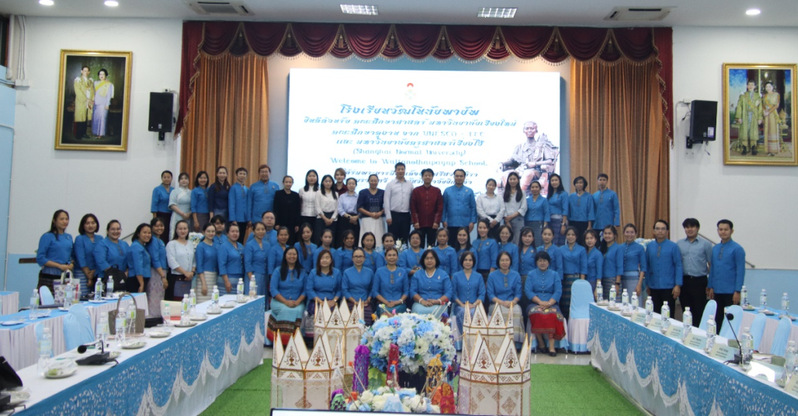
On July 6, the study tour group joined faculty and students from the Department of Educational Management, Chiang Mai University, to witness and participate in Thailand’s distinctive teacher worship ceremony. Dressed in Thai school uniforms, students of the department presented flowers, incense candles, and banana leaf garlands to their teachers, performing the wai gesture, while teachers tied white strings symbolizing blessings around the students’ wrists. Many faculty and students were moved to tears when the entire assembly recited the Ode to Respecting Teachers. This solemn ceremony not only embodies the inheritance of the spirit of respecting teachers and valuing education but also highlights the mission of educators to nurture hearts with virtue and cultivate people through culture.
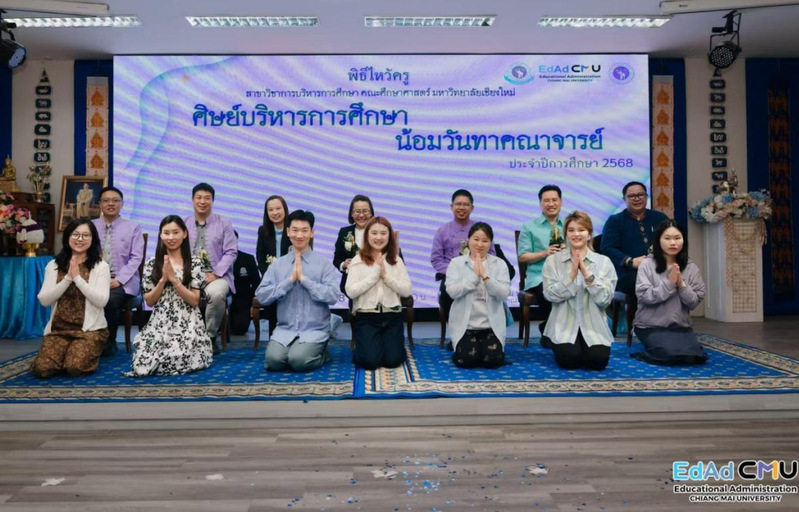
On the morning of July 7, the study tour group visited Dara Academy, a century-old institution, experiencing the school’s educational philosophy of valuing both inheritance and innovation during the campus tour. School leaders systematically introduced its three-stage education model, triggering in-depth reflections among the group on educational phenomena in different cultural contexts. In the Chinese language teaching session, the study tour group elaborately designed Shanghai Culture Workshops with five themes: Shanghai Speed, Shanghai Trends, Shanghai Colors, Shanghai Architecture, and Shanghai Cuisine, vividly presenting language learning alongside the urban pulse and cultural heritage of Shanghai. Holding postcards of the Oriental Pearl Tower they had drawn, the children said in their newly learned Chinese, Shanghai, so beautiful!
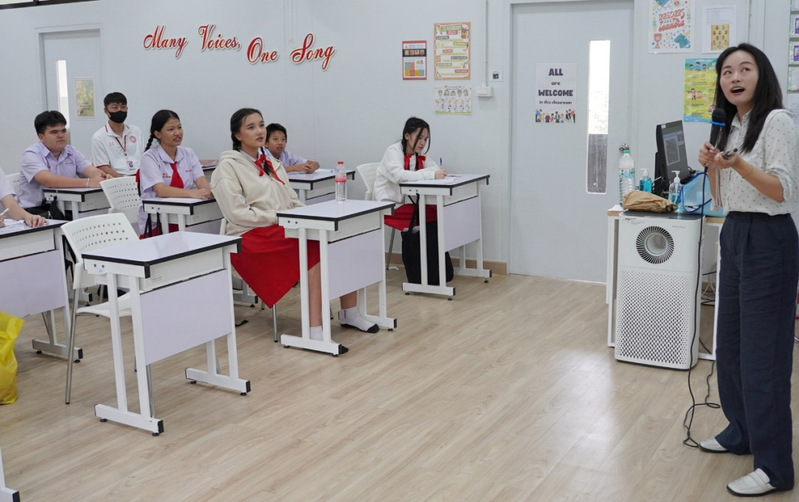
In the afternoon, experiences of Shanghai’s education were shared. Wu Mengying analyzed the three-dimensional framework of Shanghai’s teacher research system, starting with the teacher growth community. Qu Yafang used the case of the Fifth Jiading Experimental School Affiliated to Shanghai Normal University to explain innovative practices in curriculum integration in Shanghai’s primary and secondary schools. Thai teachers nodded in approval, and an impromptu brainstorming session on China-Thailand classroom management strategies ensued.
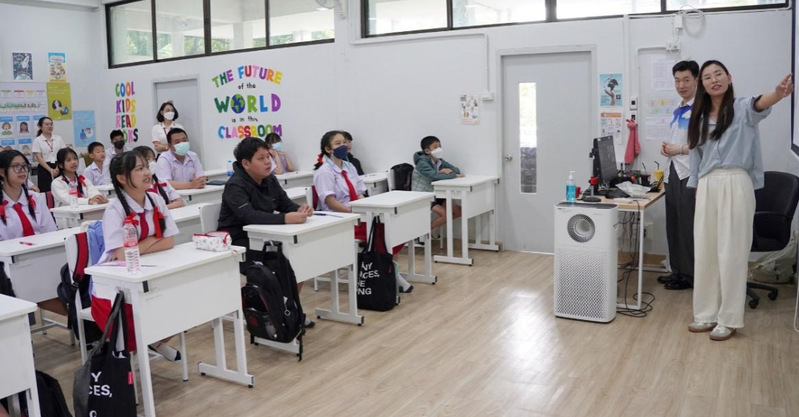
On July 8, at the Chiang Mai College of Dramatic Arts, the study tour group gained an in-depth experience of the essence of Thai art education. In the performance class, students practiced Khon dance mask movements barefoot, while teachers leaned down to adjust the curvature of their fingertips, emphasizing that ritual is the soul of tradition. In the instrument workshop, the clear sound of bamboo xylophones flowed like a stream, as students focused on tuning scales, interpreting the mathematical rhythm of Thai music.
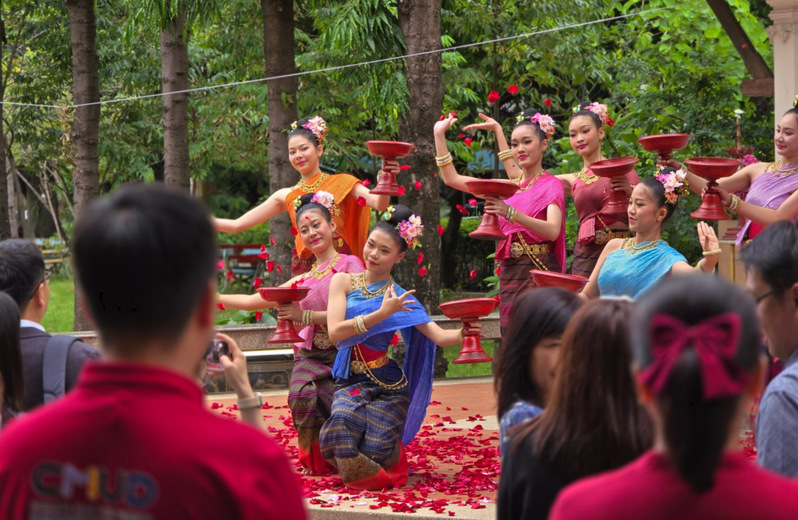
During the interactive session, Chinese and Thai faculty and students played Thai drums together and danced the Manora dance. Cultural differences dissolved in artistic resonance, and the true meaning of educational exchange became tangible at this moment. Art education, indeed, serves as a bridge where understanding and mutual growth take root.
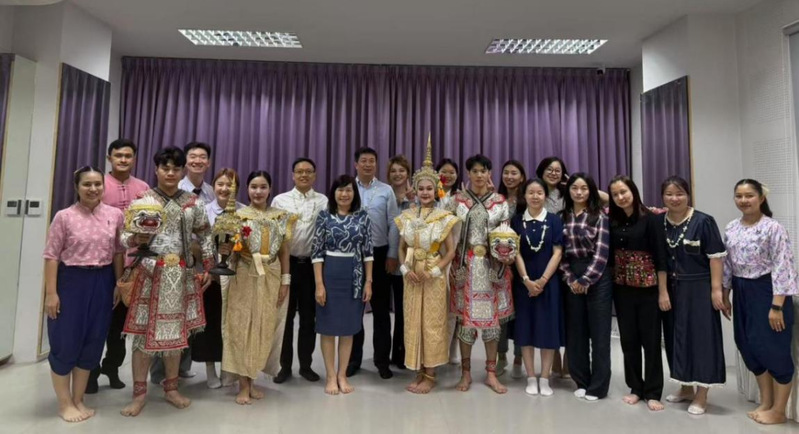
On July 9, the study tour group visited Kowitthamrong Chiang Mai School. The visit coincided with the local traditional Candle Festival, giving the group the opportunity to enter a temple, discuss the integration of Thai religion and education with monks, and participate in the grand parade and candle-offering activities with the school’s faculty and students, experiencing the strong religious and educational atmosphere. In the afternoon, under the guidance of the school’s teachers, the group tried their hand at hand-painting canvas bags and making Thai nasal inhalers. Accompanied by faculty and students, they also visited a local market, learning about the school’s community-based club activities and practices rooted in local culture. The day’s activities allowed the group to deeply experience the integrated development between Thai school education and the local community.
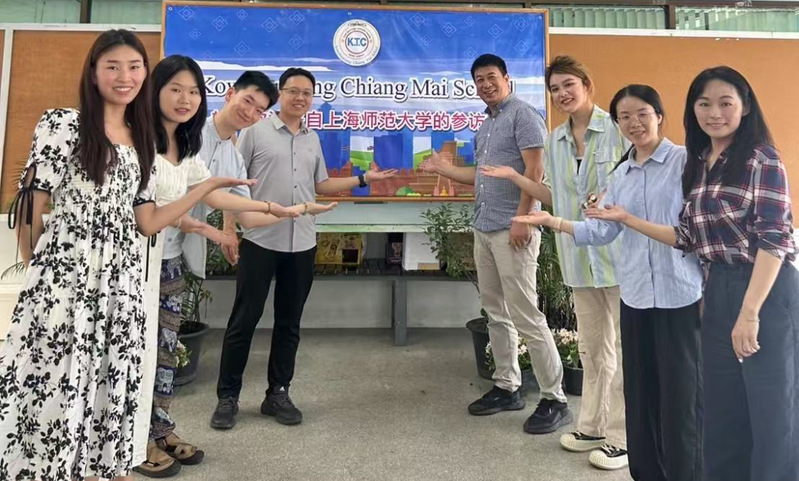
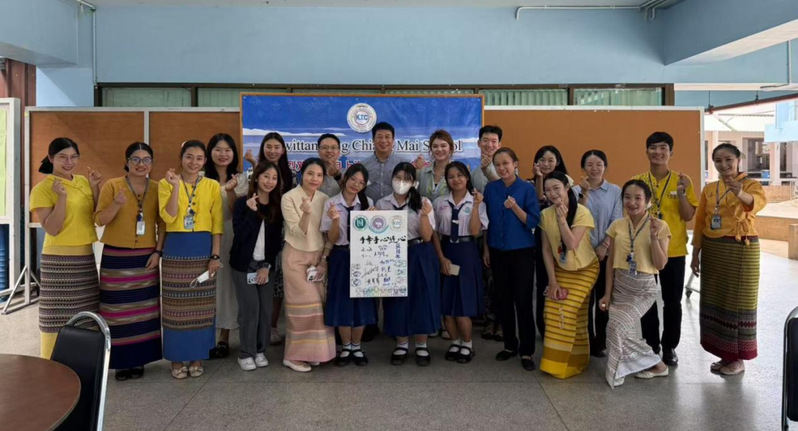
On July 10, the 11 members of the study tour group bid farewell to Ms. Phattharamanat Sritrakul from the Faculty of Education, Chiang Mai University, thanking her for her selfless dedication to the event. This study tour was rich in content, covering educational institutions at all levels from universities to primary and secondary schools, and from comprehensive universities to art colleges, as well as educational dialogues at various levels, including international conferences, departmental exchanges, faculty-student talks, and afternoon tea chats. The group gained in-depth insights into Thai schools, communities, and temples, engaging in a unique and profound China-Thailand educational exchange, enhancing their international understanding in education, and strengthening China-Thailand educational and people-to-people exchanges. Throughout the tour, faculty and students also conducted multiple, multi-level, and frequent interviews on the topic of Chinese education from an external perspective, aiming to better convey China’s voice and tell China’s educational stories in the future.
This study tour coincided with the 50th anniversary of the establishment of diplomatic relations between China and Thailand. The event was jointly supported by the UNESCO Teacher Education Centre, the College of Education of Shanghai Normal University, and the Faculty of Education of Chiang Mai University. In the future, the UNESCO Teacher Education Centre and the Faculty of Education of Chiang Mai University will organize annual exchange visits, promoting in-depth cooperation in teacher training, student exchanges, and curriculum co-development, contributing to high-quality China-Thailand educational exchanges and cooperation.




